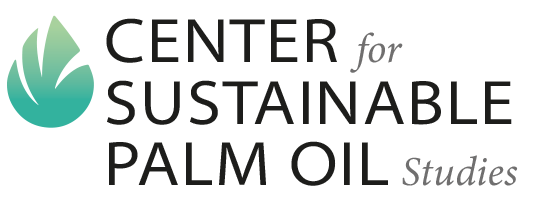
The European Union (EU) and palm oil producing countries such as Indonesia and Malaysia have been at loggerheads for some years now over continuing opposition by the EU to palm oil, citing claims of unsustainability which have been vehemently protested by the producers.
More recently, this debate has been centred around the EU’s controversial Farm-to-Fork (F2F) strategy, which combines both regulatory and non-regulatory initiatives in an attempt to improve its overall food chain, but which many have said also unfairly targets produce and food products manufactured outside of the EU.
“The issue here is that we are sure that this is not going to be just applicable to produce that is generated in the EU, but all produce entering the EU would be subject to this too as these have become part of the EU food chain given how highly globalised the world has become,” then-Malaysian Palm Oil Council (MPOC) CEO Datuk Dr Kalyana Sundram told us previously.
“What is most worrying is that in this strategy, nothing has been made clear if existing sustainable palm oil certification standards such as those by the Roundtable on Sustainable Palm Oil (RSPO) or our local Malaysian Sustainable Palm Oil (MSPO) certification will be accepted by the system.”
FoodNavigator-Asia recently asked EU Ambassador to Singapore Barbara Plinkert aout the F2F approach and how palm oil would be affected within this – Ambassador Plinkert emphasized that there are ‘no bans’ on palm oil or products containing this within the EU.
“The F2F strategy [developed by the European Commission] is an integrated approach to food safety, covering all sectors of the food chain [from] primary production to processing to retail and foodservice and everything within,” she told us.
“The aim is to ensure that agri-food chain legislation for the protection of human health, animal health and welfare, and plant health, is correctly applied and enforced.
“[As for palm oil], imports of palm oil or consumption of food products with palm oil are not banned in the EU. On the contrary, palm oil exports to the EU continue to grow and European manufacturers continue to use palm oil as a key ingredient for food products, including chocolate.”
However, Ambassador Plinkert also stressed that it is local European consumers who demand sustainability and guarantees of environmental-friendliness in their food products, and this is what could make the difference to a product’s acceptability and success in the EU.
“Like in the case of organic produce or other sustainability schemes, consumers in the EU are however demanding sustainable palm oil and guarantees that palm oil does not come from plantations, which cause deforestation,” she said.
“[So] more than a concern, there is a business opportunity to make sure that palm oil or other ingredients of agri-food products are sourced in a sustainable manner.”
Debate rages on
Indeed, the EU has often been quick to emphasise that there are ‘no import bans’ on palm oil or related products to the region – for example, EU Ambassador to Indonesia and Brunei Vincent Piket also told Indonesia’s INAPalm Talkshow that ‘there is no ban’ on the import of palm oil into the EU, stressing that this ‘does not exist’ – yet the fact remains that the F2F strategy will undoubtedly make things difficult for palm oil if the terms over its ‘sustainability’ are not agreed upon.
As it is, earlier this year the EU was forced to defend its Renewable Energy Directive II (RED II) policy at the World Trade Organisation (WTO) against allegations from Indonesia and about 20 other complainants regarding the discriminatory nature of this directive, which saw palm oil being effectively banned from the EU’s renewable energy plans.
The jury is still out on the discrimination bit, but though this was not a restriction or ban per se on palm oil in food, to say that there has been ‘no ban’ on palm oil in the EU does seem to be stretching things a bit.
Is the UK coming around to palm oil post-Brexit?
The UK was one of the EU’s closest allies in the palm oil fight before Brexit, but with the separation now concluded, the focus for the UK is likely on acquiring more trade allies and boosting food trade – which could mean a step back in its anti-palm oil sentiments.
UK Secretary of State for International Trade Liz Truss has urged local food manufacturers to set sights on the Asian middle class to boost post-Brexit food and drink exports, saying that: “By the end of this decade, 66 per cent of the world’s middle-class consumers are expected to be found in Asia. They are hungry for top-quality food and drink.”
In addition, the UK is also applying to become an ASEAN dialogue partner, which would give it better access to the region alongside better co-operation on policy issues – and considering the fact that palm oil is a major commodity for some ASEAN countries, it would be hard to continue forcing one of Malaysia and Indonesia’s most major points of contention if it wants to get into the region’s good books.
By Pearly Neo


